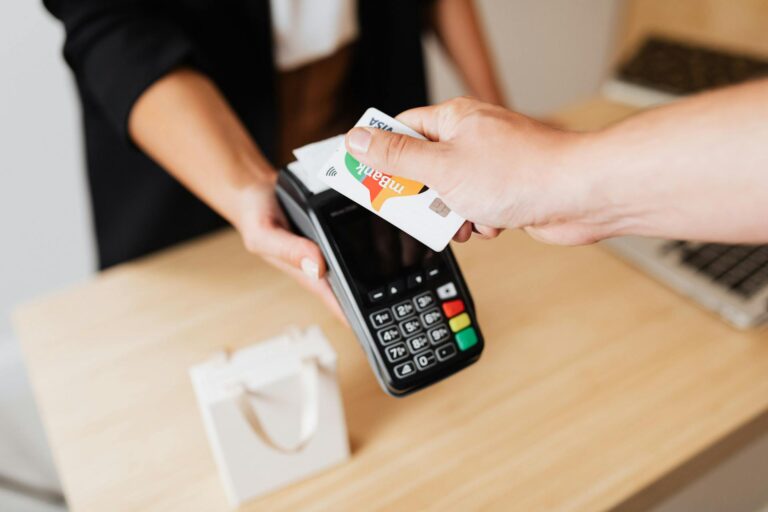
The Beginner's Guide to Mastering Your First Credit Card
Navigating the complex waters of personal finance often begins with a fundamental tool—the credit card. In a world where strong credit history is the foundation for significant financial transactions like home buying, the art of responsible credit card ownership is paramount. Financial novices out there, you are in the right place. This comprehensive guide is your compass to understanding, choosing, and making the most of your first credit card.
Understanding the Plastic that Shapes Your Financial Health
Before you even ponder over shiny sign-up bonuses and cashback deals, grasp the essence of a credit card. This little piece of plastic allows you to ‘buy now and pay later,’ fostering a financial relationship between you and a lender. Your card comes with a preset credit limit, the maximum amount you can charge. Each month, you get a bill for the total sum of your charges
Credit Card Basics for Financial Newbies: Your Path to Responsible Spending
Navigating the world of credit can be as perplexing as untangling a knot of charging cords. For the financial beginner, understanding the ins and outs of credit cards is a crucial first step toward building a robust financial future. In this guide, we’ll unravel the mysteries of plastic money and chart a course to using credit cards responsibly—from choosing the right one to mastering the fine art of managing your balances.
Whether you’re a recent high school graduate or someone who’s taken a detour from the financial education highway, this post will serve as your map to sensible spending. Financial experts often tout credit cards as both a powerful personal finance tool and a potential minefield for debt. The truth is somewhere in between, and our mission is to equip you with the knowledge to harness the power of credit without falling into the financial abyss.
The Elements of a Credit Card
A credit card has several key features. Here are the most critical elements:
- Credit Limit: This is the maximum amount you can spend on your card before the bank or credit union technically cuts you off, or before you need to pay some of the balance before you can use it again. It’s often based on your credit history and income.
- Annual Percentage Rate (APR): This is the interest rate you will pay if you carry a balance past the grace period. It’s stated as a yearly rate but calculated monthly.
- Fees: Credit cards can inflict various fees, including annual fees, late payment fees, over-limit fees, and balance transfer fees. Make sure you’re aware of these before swiping.
- Rewards: Many credit cards offer incentives, such as cash back, travel points, and discounts. While they can be nice, they should never be the primary reason for choosing a card.
Choosing Your Financial Ally
Selecting the right credit card is like choosing the right tool for the job. Without the right tool, the project will be more effort than it’s worth. Similarly, with the wrong credit card, expensive interest payments and frustrating fees can quickly sour what seemed to be a sweet deal.

Types of Credit Cards
There are a few major types of credit cards:
- Rewards Cards: These cards offer incentives for usage, which can include cash back, travel miles, or points that can be redeemed for products. They often come with higher interest rates and annual fees, so be sure the rewards are worth the cost.
- Low-Interest or 0% Intro Cards: These are designed to help consumers avoid high interest when they don’t pay their balance in full each month. They usually come with an introductory period of low or 0% interest.
- Secured Cards: These cards require a deposit, which acts as your credit limit. They are often used to build or rebuild credit.
- Student Cards: Geared toward college students, these cards usually have lower credit limits and are more lenient with credit history.
- Business Cards: These are for small business owners and often come with features that cater to the needs of businesses, like higher credit limits.
What to Consider When Choosing a Card
When you’re on the market for a credit card, it’s crucial to evaluate:
- Your spending habits: If you’re planning to pay in full each month, the interest rate might not matter as much. If you tend to carry a balance, a low APR can save you money.
- Fees: Especially for beginners, it’s critical to minimize fees. Look for cards with no annual fees or low late payment fees.
- Your credit score: If you have no credit history or a poor credit score, a secured card or a card designed for rebuilding credit might be your best bet.
- Goals: If you know you’ll be a frequent traveler, a card with good travel rewards could make sense, despite a higher interest rate.
What to Consider When Choosing a Card
When you’re on the market for a credit card, it’s crucial to evaluate:
- Your spending habits: If you’re planning to pay in full each month, the interest rate might not matter as much. If you tend to carry a balance, a low APR can save you money.
- Fees: Especially for beginners, it’s critical to minimize fees. Look for cards with no annual fees or low late payment fees.
- Your credit score: If you have no credit history or a poor credit score, a secured card or a card designed for rebuilding credit might be your best bet.
- Goals: If you know you’ll be a frequent traveler, a card with good travel rewards could make sense, despite a higher interest rate.